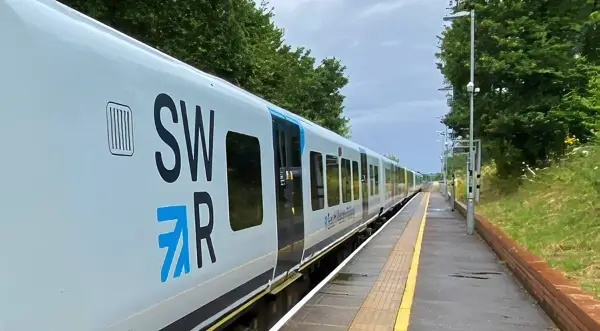On 25 May 2025, South Western Railway (SWR) became the first UK train service to return to public ownership under new legislation, marking a significant shift in the nation’s rail system.
This move aims to enhance service reliability and save taxpayers up to £150 million annually.
Public Ownership: A New Era for UK Rail
The transition of South Western Railway into public ownership represents a pivotal moment in the UK’s rail history.
After nearly three decades of privatized services, this change is expected to improve punctuality and reduce cancellations, directly benefiting commuters and travelers across the network.
The creation of Great British Railways (GBR) will unify operations, replacing fragmented private operators with a single accountable body focused on public service.
This shift follows the Public Ownership Act passed in November 2024, which set the stage for all passenger services to return by 2027.
The integration aims not only to enhance passenger experience but also to redirect substantial savings from operator fees into further improvements.
Benefits for Commuters
- Improved punctuality and reduced cancellations
- Enhanced passenger experience with better service consistency
- Potential stabilization of fares due to redirected savings
- Increased investment in infrastructure and station improvements
- A unified rail operation under Great British Railways
The Broader Effect on UK Transportation
Analysts expect the re-nationalization of SWR to have far-reaching effects beyond just improving train services.
For professionals and businesses relying on rail transport, enhanced reliability could lead to fewer travel delays, positively impacting productivity and reducing stress levels.
Additionally, families, students, and workers using routes like those from Bournemouth or Exeter will likely notice immediate benefits.
Voices from Industry Leaders
“Today is a watershed moment in our work to return the railways to the service of passengers,”
said Heidi Alexander MP, Secretary of State for Transport.
“Operators will have to meet rigorous performance standards and earn the right to be called Great British Railways.”
From Privatization Back to Public Control
This development builds upon historical shifts since the 1990s when UK rail was fragmented among multiple private operators.
The government outlined the move towards creating GBR in earlier plans. These plans were part of a strategic reset to improve accountability and reduce inefficiencies within the network.
Additional Reading
To Sum Up
The transition of South Western Railway back into public hands marks a significant step toward improving UK rail services.
With potential savings redirected into enhancements, this move promises better reliability for passengers while fostering national pride in public infrastructure.
As GBR takes shape by 2027, commuters can anticipate more seamless travel experiences.
Sources: UK Government, Wikipedia, Journee-Mondiale.com, Department for Transport, DfT Operator Limited and Heidi Alexander MP.
Prepared by Ivan Alexander Golden, Founder of THX News™, an independent news organization delivering timely insights from global official sources. Combines AI-analyzed research with human-edited accuracy and context.









